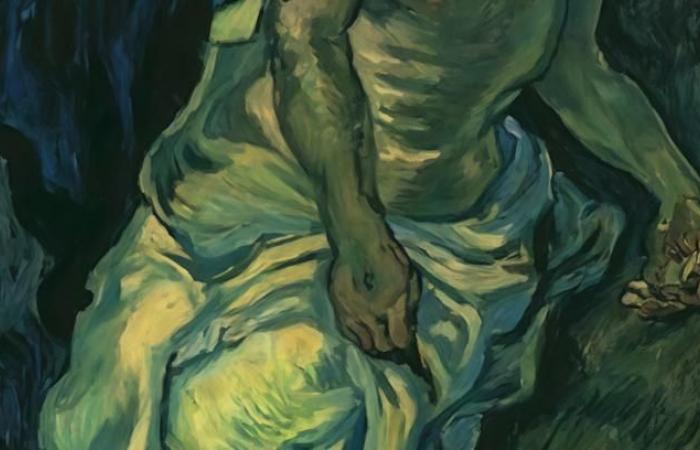Nature and animals cannot be missing from the novels and stories of Vincenzo Pardini, which show the way to men who struggle to live a decent life. A wild, hybrid world, full of mysteries and ancient suffering, of ghosts and bandits, of stories and legends; archaic in his ways but always present to himself. This time the author from Lucca has designed his nature to fit a character who stands above all of us: Jesus. And he has placed next to him an animal different from the usual ones in the Scriptures: a dog. A combination that is not at all blasphemous, on the contrary. Life of Christ and his stray dog (Vallecchi, in bookstores from tomorrow) is a parable in which the writer wants to reiterate how, more than two thousand years later, the voice of the Lord is still the most human and how his messages are current and can show us the path to peaceful coexistence between men and between them and nature.
Pardini, let’s start from the very intriguing title: how was it born?
“Years ago I saw a painting whose author I don’t remember: it was a Last Supper and in the background you could see a small white dog. A story of Christ with the animal came to mind.”
Not a simple topic…
“In fact, I took the idea and abandoned it again; the writing didn’t go away, I couldn’t be credible. This happened five or six years ago and in the meantime I wrote Il valico dei briganti”.
What put you back on the right track?
“Giovanni Papini and the rereading of his Story of Christ. And so I started writing again”.
Why tell the life of Jesus?
“I have always had a good relationship with Christ, I have always been a believer. In the book I wanted to demonstrate that beyond everything people say and think, he was a normal person. I followed the teachings of the Bible and among the Gospels that of John: mine is the Christ of the Holy Spirit”.
Next to him appears what will later be called Ebaù: why?
“Studying I discovered that in reality a dog really existed and therefore I took it as a pretext by combining scenes from the life of Christ linked to it”.
Huge, with shining white fur, he arrives in the cave to protect the Child, alongside the ox and the donkey, he follows him and sometimes saves him from dangers: who is Ebaù in reality?
“An angel”.
Is that why he’s the only white specimen next to black, growling dogs? The metaphor of good and evil?
“Yes, and moreover what inspired me was a Maremma shepherd that I owned and who was called Jodo, just like the character in one of my novels (Jodo Cartamigli on which the film Il mio West by Giovanni Veronesi with Pieraccioni was based, Keitel and Bowie, ed.). Maremmas are independent dogs, with a sometimes primitive mentality; they may not obey you, but theirs is a protective character.”
What Ebau has for Christ…
“For he will remain wild and faithful after Jesus is crucified. And he will await his return because he has chosen him as his master for eternity.”
How does Vincenzo Pardini demonstrate his loyalty to the Lord?
“Mine is a personal faith. I believe that God is hidden and we must know how to look for it. It is a question of thought, we don’t need a computer to find him because here we are in the world of the spirit”.
The use of the word is striking in your novel: what is the word for you?
“In a certain sense that’s everything. I am a seeker of words, they must be our friends in this period of political, moral and cultural crisis. We are no longer capable of using them, we don’t give any meaning to them, we don’t know how to get out of a phrasebook that has become monotonous. Our mind is anesthetized and we can’t go any further. Even with punctuation I want to wake up the brain.”
You fight anesthesia by alternating cultured and slang language, why?
“The learned words are those of Christ: I had to be extremely honest towards myself and precise for others in describing as best as possible what his Passion was. The use of slang words is instead part of our past, from Dante onwards : we must keep our memory alive.”
Was Jesus aware of his sacrifice and did he suffer for it?
“Christ knew what awaited him, repeating: ‘I must be about my Father’s business’. I think he suffered when they didn’t believe him, when they turned on him and he kept saying: ‘I’m going.'”
What did Christ man think of all this?
“I think he was a little annoyed by the humanity around him, that he was disappointed by it. But deep down he wanted to save it.”
She likes Pilate, at least from what transpires from the book…
“I would say yes; he is a soldier lent to politics, a corrupt man. I have seen a lot of his colleagues today. When he sends Jesus to Herod he wants to absolve any responsibility because in Christ he had sensed something greater than himself and the personality had crushed.”
Compared to other novels about Jesus, I’m thinking of Saramago’s, women have much less space in her. How come?
“Instead I think that the Samaritan woman, the one to whom the unique Jesus reveals himself, is an example of how the woman is equal to the man, even better because she brings creatures into the world”.
Who do you recommend reading it to?
“I would like every reader to take from it what seems useful to him and whoever has lost faith can find it again.”






